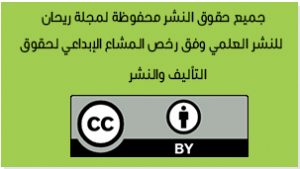أبرز الجهات الحکومية المعاصرة التي تقوم بأعمال الحسبة
Accountability (hisbah) has great importance in the process of reform and change, and it has significant effects in strengthening the Basis of the state. It is important to familiarize ourselves with the prominent government entities that are involved in accountability in our present era. Despite my research, I did not find any specific study, whether old or recent, on this topic. We may wonder about the prominent contemporary government entities that engage in accountability activities. Is the function of accountability distributed among different entities in contemporary government agencies, or is it centralized in a specific entity? Through this research, which includes an introduction, three chapters, and a conclusion, we conclude that the fields of accountability have expanded due to human development and progress. Therefore, obligations and important tasks have been distributed among different departments and entities in contemporary governments, such as the Saudi Arabian monarchy and the Islamic Republic of Iran, which are among the greatest Islamic countries that are highly concerned with accountability. Additionally, the Islamic Emirate of Afghanistan, which is one of the greatest Islamic countries in terms of accountability, has appointed a special ministry to carry out accountability activities related to ethics and public manners. Thus, we realize that the Ministry of Interior and the Supreme Audit Office Authority perform important accountability tasks, with the former focusing on accountability for criminals and the latter inspecting the work and functions of departments. The Ministry of Health, Municipality Administration, and National Standards Administration are also special entities for accountability and its contemporary applications in their respective areas. Finally, we can say that the function of accountability is distributed among contemporary government entities and cannot be limited to a specific ministry or entity.
Keywords: Accountability, Entity, Government, Administration, Ministry.
Aminullah MUSAEID, Assistant Professor, Sharia Faculty, Dawat University Kabul –AFGHANISTAN
And student in the Department of Judiciary and Islamic Legal Policy at the Afghan International Islamic University
Supervisor: Dr. Rafiullah MUNIB, Assistant Professor, Department of Judiciary and Islamic Legal Policy, AIIU – AFGHANISTAN
 مجلة ريحان للنشر العلمي مجلة علمية، محكمة، شهرية، مفتوحة الوصول
مجلة ريحان للنشر العلمي مجلة علمية، محكمة، شهرية، مفتوحة الوصول
